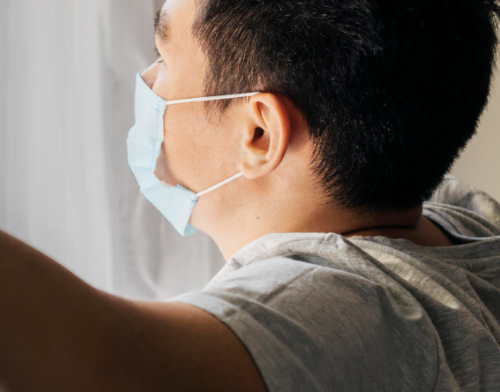
Got someone with COVID-19 at home? Here’s how to keep the rest of the household safe.
Coronavirus is a highly contagious and communicable disease. What’s challenging about this virus is that if one family member gets infected, others in the family always have a high possibility of contracting the virus as well. In such a situation, it is imperative for all family members to practice barrier care at home in order to prevent transmission by symptomatic persons.
What is Barrier Care? This occurs when a patient is kept in a bay and extra precautions are implemented to prevent spread of the virus/germ.
We are listing below a few hygiene and safety protocols for practising barrier care at your home.
Isolation

Ideally, the COVID-positive person should have their own room and bathroom to minimise contact with others. If a dedicated room isn’t available, they should maintain as much distance as possible from other members of the household. It’s especially important for anyone in the household who is at higher risk — such as elderly family members or people with compromised immune systems — to keep their distance from the infected person.
Ventilation

The better the ventilation, the lower the risk of transmission. If the weather permits, open windows to encourage air exchange.This is especially important when remembering that indoors the virus can remain in the air in very small droplets and potentially infect others. It is also a good idea to keep the door to the infected person’s room closed to minimise the movement of contaminated air into the rest of the house.
Personal hygiene

Everyone in the household, especially the COVID-19 patient, should practise good respiratory hygiene (covering coughs and sneezes and disposing of used tissues). Everyone in the household should wash their hands frequently, particularly before eating or after handling potentially contaminated objects. Use soap and water for at least 20 seconds or a sanitiser with at least 60% alcohol.
Caregivers should wear disposable gloves if they’re going to come into contact with body fluids such as vomit, faeces or saliva. All contaminated waste — such as used tissues, masks and gloves — should be put into a dedicated bin. The bin should have a lid and be lined. Wear disposable gloves when emptying the bin.
Mask Up

The World Health Organisation (WHO) recommends the infected person wear an N95 mask as much as possible to reduce the number of infectious particles in the air and lower the risk of transmission. Caregivers may also wear a N95 mask when entering the infected person’s room. Further, if you need to be in the same room with the person who is ill and he or she isn't able to wear a face mask, wear an N95 mask and stay at least 6 feet (2 meters) away from the ill person. Don't touch or handle your mask while you are using it. Masks help contain respiratory infections from the nose and mouth of the infected person. But more recent data supports that masks protect individuals from becoming infected as well.
Sharing isn’t caring
To prevent possible spread via contaminated objects, avoid sharing sheets, towels, toothbrushes, cups and glasses, eating utensils or equipment such as mobile phones with a COVID-positive person.
If others need to use or handle utensils the COVID-positive person has used, wear gloves when handling them, wash them with hot water and detergent or put them through a hot cycle in the dishwasher. Objects you can’t wash can be wiped down with disinfectant.
Up your cleaning game

You should clean surfaces such as benchtops and tables daily with hot soapy water followed by a disinfectant. Pay particular attention to cleaning frequently touched shared surfaces, such as door and cupboard handles, light switches, toilets, sinks and taps. If the bathroom is shared, the COVID-positive person should clean and disinfect the bathroom after using it if they’re well enough to do so.
Caring for someone with COVID-19
If you’re looking after a family member or housemate with COVID-19, ensure they have nutritious food to eat and fluids to drink. People with a virus often feel fatigued as a result of their body’s immune response, so it is important they get plenty of rest. While fever is nature’s way of fighting off an infection — our immune cells work better when we have a fever — if needed, anti-pyretic drugs such as paracetamol can make the person more comfortable.
Certainly the caregiver needs to stay on top of the SPo2 levels of the patient, with the use of a Pulse Oximeter, and consult with a physician on a threshold level at which to move the patient to a hospital.
Finally, members of the household should keep an eye out for and get tested if they develop any COVID-19 symptoms, such as cough or fever.
Share